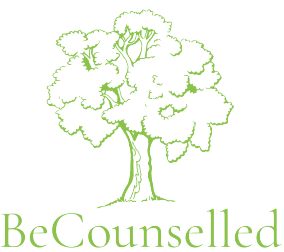How Couples Counselling Can Help You Overcome Common Relationship Challenges
A Case Study Example
Every relationship faces its unique challenges, whether it’s communication breakdowns, trust issues, or navigating major life changes. When left unresolved, these challenges can strain even the strongest partnerships. Couples counselling provides a supportive space to address these difficulties and foster understanding, connection, and growth.
In this post, we’ll explore how couples counselling works by following the journey of Alex and Taylor (names changed for privacy), a couple who sought help to overcome their struggles. Through their story, you’ll see how counselling can transform your relationship.


Alex and Taylor had been together for five years when they noticed a shift in their relationship. What started as minor disagreements escalated into recurring arguments. They avoided tough conversations, fearing they would only worsen the tension. Both felt unheard and distant, but neither knew how to bridge the growing gap.
Common Challenges Addressed:
- Lack of effective communication.
- Avoidance of difficult topics.
- Feelings of emotional disconnection.
When they decided to seek couples counselling, they were skeptical but willing to try. Their first session was about identifying their key challenges and setting goals for the future.
Step 1: Building a Safe Space
In the initial sessions, their counsellor focused on creating a safe and non-judgmental environment. Both Alex and Taylor were encouraged to share their perspectives openly, without fear of criticism.
What Happens in This Stage:
- The counsellor establishes trust and neutrality.
- Partners discuss their feelings and concerns in a guided setting.
- Sessions focus on listening and understanding each other’s experiences.
Alex shared: “It felt good to finally speak without being interrupted or dismissed. I realized Taylor had concerns I hadn’t fully considered.”
Taylor added: “Hearing Alex talk without defensiveness made me see how much we’d both been hurting in silence.”

Step 2: Improving Communication Skills
A significant part of Alex and Taylor’s journey involved learning better ways to communicate. Their counsellor introduced tools such as active listening and “I” statements to reduce blame and foster connection.
Techniques Taught:
- Active Listening: Focusing entirely on what your partner is saying without planning a response.
- Reflective Statements: Summarizing what the other person said to confirm understanding.
- “I” Statements: Expressing feelings without blaming (e.g., “I feel upset when…” instead of “You always make me…”).
Through practice in sessions and at home, Alex and Taylor began to express themselves more effectively. Over time, their arguments became less frequent and more productive.
Step 3: Rebuilding Trust
One of the deeper issues in their relationship was a breach of trust. Taylor had made a financial decision without consulting Alex, which created resentment. Counselling helped them address the underlying fears and rebuild trust.
How Trust Is Rebuilt in Counselling:
- Openly discussing the event that led to the breach.
- Establishing clear boundaries and accountability.
- Learning to forgive and focus on actionable steps for moving forward.
The counsellor guided them through exercises to rebuild their partnership, including weekly check-ins to discuss concerns before they became conflicts.

Step 4: Strengthening Emotional Intimacy
As they worked through their challenges, Alex and Taylor also focused on reconnecting emotionally. Over time, the daily stressors and unresolved issues had left them feeling more like roommates than romantic partners.
Counselling Tools for Emotional Intimacy:
- Gratitude Journals: Writing down things they appreciated about each other.
- Date Nights: Reintroducing time for fun and connection outside of counselling.
- Mindfulness Practices: Exercises to be present and attuned to each other’s emotions.
Taylor noted: “I had forgotten how much I admired Alex’s kindness. These small exercises helped me see them in a new light.”

Step 5: Aligning Goals and Values
Finally, their counsellor encouraged Alex and Taylor to explore their shared goals and values. By discussing their future openly, they developed a stronger sense of partnership and direction.
Key Topics Covered:
Financial Goals: Establishing joint budgets and decision-making processes.
Family Plans: Clarifying expectations about children or extended family involvement.
Personal Growth: Supporting each other’s individual aspirations.
These sessions helped them see their relationship as a team effort, with both partners invested in each other’s happiness and success.
The Outcome: A Renewed Relationship
After several months of counselling, Alex and Taylor felt a significant shift in their relationship. They communicated more openly, approached challenges as a team, and rekindled the emotional intimacy they thought was lost.
Alex shared: “I finally feel like we’re partners again, not just two people arguing all the time.”
Taylor added: “Counselling didn’t just fix our relationship—it gave us the tools to keep improving it on our own.”

What This Means for You
If you’re facing similar challenges in your relationship, couples counselling can provide the support and guidance you need. Whether it’s improving communication, rebuilding trust, or simply reconnecting, the process can lead to lasting change.
How Couples Counselling Can Help
At BeCounselled, we specialize in helping couples:
- Strengthen communication skills.
- Rebuild trust after breaches.
- Enhance emotional intimacy.
- Navigate major life changes together.
Every relationship is unique, and so is our approach. We tailor each session to meet your specific needs and goals.
